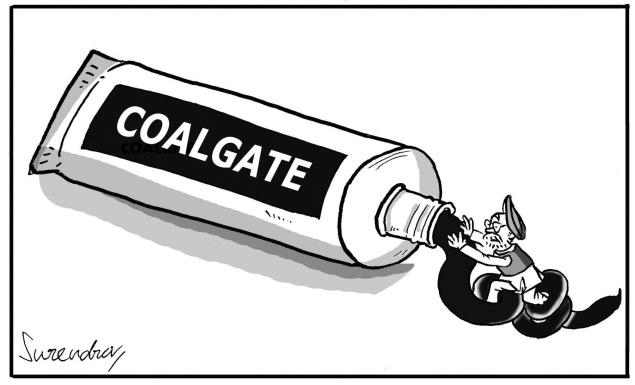 NEW DELHI, July 22;With the Supreme Court seeking records of the allocation of nearly 178 coal blocks, the Prime Minister’s Office (PMO) and the Coal Ministry have virtually thrown up their hands on tracing the missing records of allocation of coal blocks as well as reasons for non-allocation to various entities, a development that is likely to put the government in the dock.
NEW DELHI, July 22;With the Supreme Court seeking records of the allocation of nearly 178 coal blocks, the Prime Minister’s Office (PMO) and the Coal Ministry have virtually thrown up their hands on tracing the missing records of allocation of coal blocks as well as reasons for non-allocation to various entities, a development that is likely to put the government in the dock.
On July 11, the Supreme Court had ordered the Central Government to produce all the records pertaining to allotment of 178 coal blocks. Interestingly, between 2004 to May 2009, Prime Minister, Manmohan Singh held the charge of the Coal Minister with two Ministers of State — Shibu Soren and Dasari Nayaran Rao working under him for brief periods on different occasions.
Following the Supreme Court order the government had set up an Inter-Ministerial Search Committee to gather information from various Departments to locate the records and produce them before the Supreme Court. The inter-Ministerial Committee comprises of officials of state-run Coal India Limited, Coal, Steel, Power and Department of Industrial Policy and Promotion who are burning midnight oil to trace the missing links.
However, highly placed sources in the Coal Ministry said that there are large number of documents pertaining to allocation of coal blocks that are missing and untraceable. In fact, these documents or records are also not available with the PMO making the task of Central Bureau of Investigation (CBI) difficult to go ahead with the investigations in a smooth and fair manner. “The records pertaining to coal block allocations especially before 2005 are missing. In some cases, the files are scattered and were being brought together. The records of screening committee and the reasons for allocation or rejection of coal blocks to companies is also missing in many cases which is likely to put a question mark over the transparency in the allocation process when the case comes before the Apex Court,’’ a senior Ministry official remarked.
Interestingly, so bad is the situation that in a number of cases the records pertaining to number of applicants are also missing. Before 2004, the companies, after recommendations from the State government, identified coal blocks and approached Coal Ministry for their allocation. The Screening Committee did not give any reasons for the allocation of coal blocks to a certain company or why it was rejecting the application of others.
However, the UPA I changed the process in 2004 and set up a Screening Committee under the Coal Secretary to decide on allocation to government companies, private entities and state governments. In fact, time and again CBI has complained that it was not receiving full cooperation from the Coal Ministry and still a large number of documents and files were not being provided. The CBI officials have contended that this has hampered the smooth investigations into the Coalgate.
Giving examples of arbitrary allocations, the Comptroller and Auditor General (CAG), in its report last year, had stated that Rampia and dip side Rampia coal block in Orissa where 108 applications were received by the Coal Ministry but only 2 parties made presentations to the Screening Committee. However, the committee recommended 6 companies for allocation.
